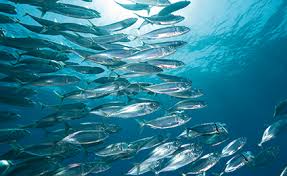Coastal Aquaculture Authority (Amendment) Bill 2023
On March 29, 2023, the Indian government introduced the Coastal Aquaculture Authority (Amendment) Bill, 2023, to amend the provisions of the Coastal Aquaculture Authority Act, 2005. The primary purpose of this bill is to promote sustainable coastal aquaculture in India while ensuring ease of doing business.
Expanding the Definition of “Coastal Aquaculture”
One of the significant changes proposed under the Coastal Aquaculture Authority (Amendment) Bill, 2023 is to broaden the definition of “coastal aquaculture.” The current definition under Section 2(1)(c) of the 2005 Act only covers the culturing or cultivating of shrimp, prawn, fish, or any other aquatic life in saline or brackish water under controlled conditions. However, the 2023 Bill aims to include the rearing and cultivation of any life stages of fish, including crustaceans, mollusks, finfish, seaweed, or any other aquatic life under controlled conditions.
Encouraging Environment-Friendly Aquaculture Practices
The 2023 Bill promotes several newer forms of environment-friendly coastal aquaculture practices. This includes cage culture, seaweed culture, bi-valve culture, marine ornamental fish culture, and pearl oyster culture. By encouraging these practices, the government aims to ensure sustainable aquaculture, reduce the ecological impact, and provide new avenues for livelihood to coastal communities.
Establishment of Facilities in Areas with Direct Access to Seawater
The 2023 Bill also aims to promote the establishment of facilities in areas with direct access to seawater. This would enable the production of genetically improved and disease-free broodstocks and seeds for use in coastal aquaculture, promoting the sustainable development of the sector.
Preventing the Use of Harmful Substances
The Coastal Aquaculture Authority (Amendment) Bill, 2023 aims to put an end to the use of antibiotics and pharmacologically active substances that are harmful to human health. This is a significant step towards promoting sustainable aquaculture practices that are safe for both the environment and consumers.
Ensuring Biosecurity Measures
The 2023 Bill proposes several provisions to ensure biosecurity measures in coastal aquaculture. This includes measures and strategies for analysing, managing, and preventing the risk of introducing or spreading harmful organisms within the coastal aquaculture unit, which could lead to infectious diseases. The bill also provides for the establishment of Brood Stock Multiplication Centres that receive specific pathogen-free or tolerant and resistant post-larvae or juveniles from a Nucleus Breeding Centre to be reared under strict biosecurity and disease surveillance.
Guidelines for Regulating Establishment and Operation of SPF Shrimp Broodstock Multiplication Centres
The Guidelines for Regulating Establishment and Operation of SPF Shrimp Broodstock Multiplication Centres, published by the National Fisheries Development Board, provide for many of the biosecurity measures mentioned in the 2023 Bill. This would ensure the safe and sustainable operation of these centres.
The Department of Animal Husbandry, Dairying, and Fisheries
The Department of Animal Husbandry, Dairying, and Fisheries was formed in 1991 to oversee matters related to animal husbandry, dairy, and fisheries and advise states and UTs on the formulation of policies and programmes. Before being subsumed under the Ministry of Fisheries, Animal Husbandry & Dairying, this department played a vital role in the development of the fisheries sector in India.
Month: Current Affairs – April, 2023
Category: Legal & Constitution Current Affairs


